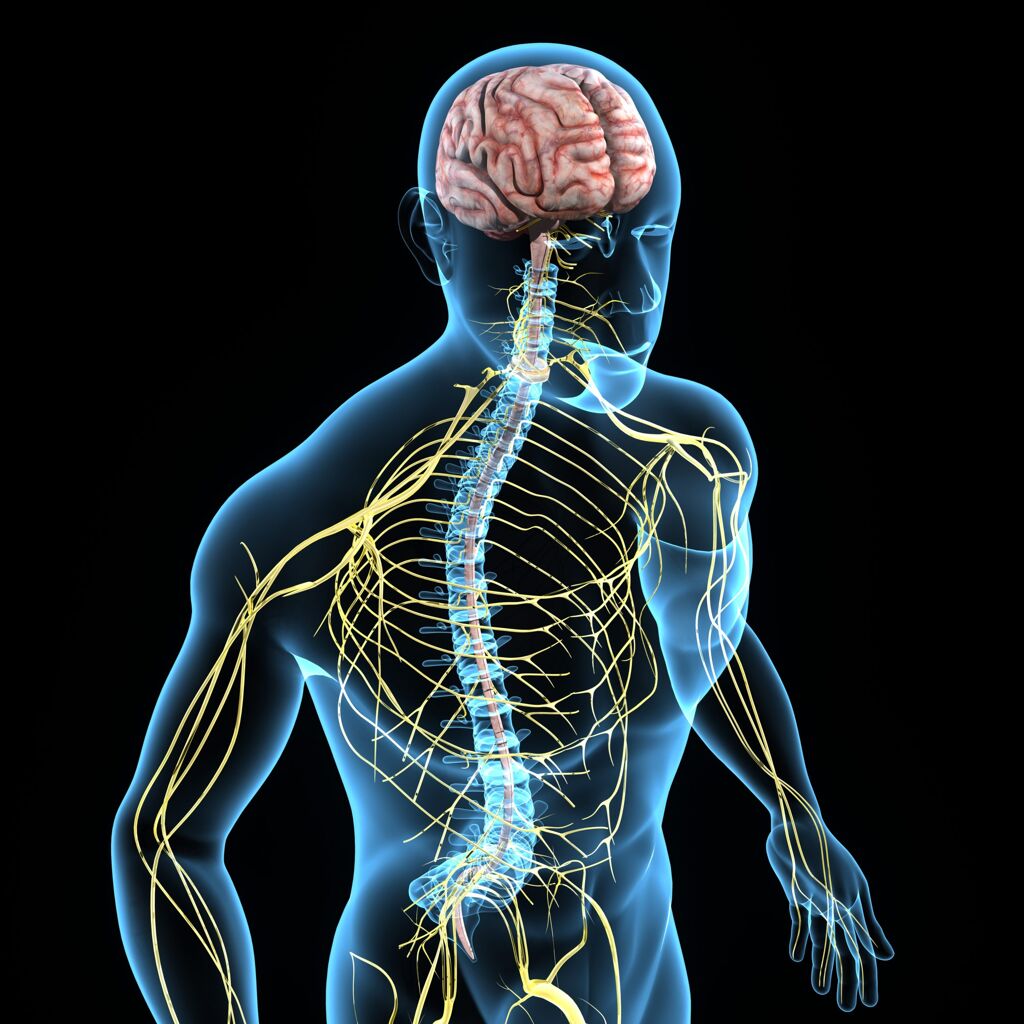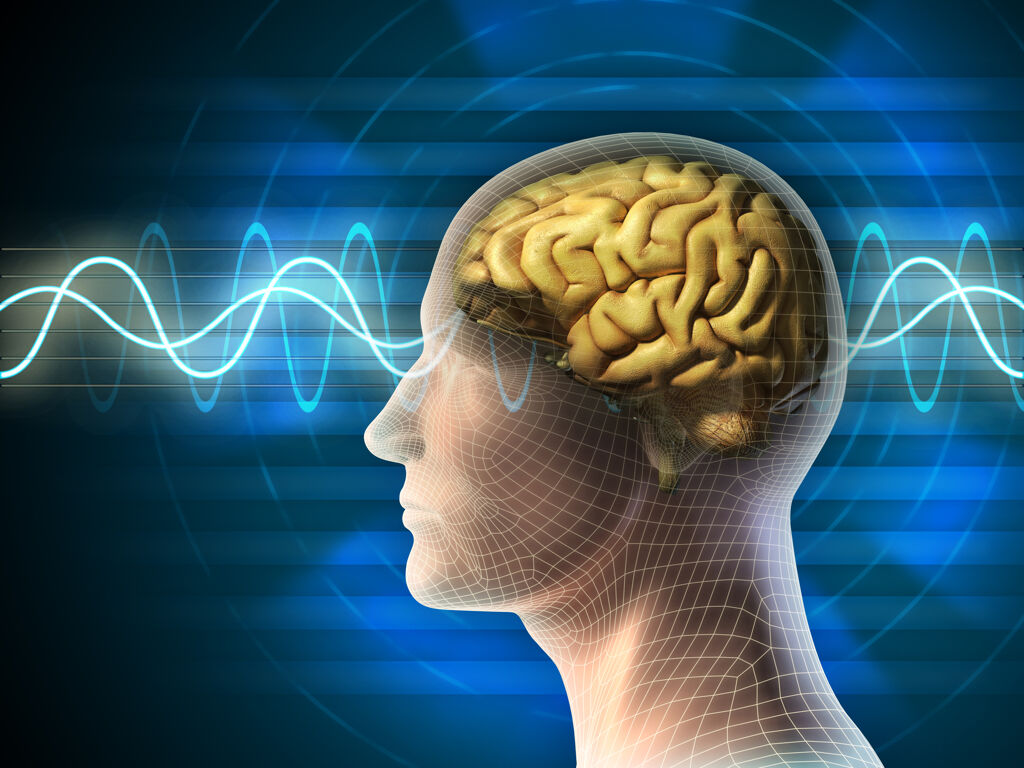Eat Right For Your Brain – Optimize Cognition Through Diet

Much of our health is in our hands. Genetics is merely one aspect. For most people, epigenetics is really what drives health and how we can optimize it. Epigenetics are changes in gene expression rather than changes in genes themselves. How we live, through epigenetic lifestyle factors, affects how our genes express themselves. This includes diet, lifestyle, exercise, stress, sleep, exposure to toxic substances and so many others.
In this blog you will learn:
- What affects brain health
- What to eat (& what not to eat) for top cognitive performance
- Example diets that support good cognition
We are living longer and to enjoy it, we need to maintain good brain health. It is a fact that cognition declines with age. Today, dementia, Alzheimer’s and other neurological conditions are on the rise. This is partly to do with living longer but primarily to do with epigenetic lifestyle factors.
You can read more on Alzheimer’s & diet & lifestyle, including factors like infection or mold illness, here and here.
Even small declines in cognitive function can predict worsening cognition and increased risk of Alzheimer’s disease, dementia and other cognitive problems later in life (Vyas CM, 2024).
- Your lifetime risk of developing Alzheimer’s is approximately 15%, assuming no prevention (Bredesen, 2016).
- Alzheimer’s disease is the 3rd leading cause of death in the US (Toups K, 2022).
- Alzheimer’s, dementia and cognitive decline are caused by the interaction between genes and the environment, known as epigenetic factors.
- What causes cognitive decline? Increasing age, genes, vascular diseases, infections, head injuries, poor diet and other lifestyle factors (Breijyeh Z, 2020).
There are currently no effective medications for preventing or reversing cognitive decline (Vyas CM, 2024). But we can preserve cognition and delay early signs of cognitive decline through diet and lifestyle habits (Vyas CM, 2024).
HOW DOES THE BRAIN WORK?
Healthy cognition is the ability to think clearly and sharply, to solve complex problems, to learn new things and remember, to have sound judgement and language skills. A healthy brain performs all these mental processes, collectively called cognition. Aging with healthy cognition is retaining an alert mind and a good memory.
Ageing changes the brain in structural and functional ways. These changes lead to cumulative damage to the brain which speeds up cognitive decline. A healthy diet can protect against age-associated cognitive decline and sometimes prevent or delay dementia. A poor diet worsens cognitive dysfunction through various mechanisms (Cardoso BR, 2022).
The hippocampus of the brain regulates learning, memory and mood. It can generate new neurons which is important for cognition. Any decline in the hippocampus impairs learning abilities (Ekstrand B, 2020). It is particularly susceptible to the effects of aging (Yeung LK, 2023).
A poor diet and some lifestyle diseases (type 2 diabetes, hypertension, obesity) contribute to a smaller hippocampus (Cardoso BR, 2022). With a smaller or impaired hippocampus, there is reduced neuroplasticity and increased risk of cognitive impairment.
Neuroplasticity is important. It is the ability of neural networks in the brain to change through growth and reorganization. The brain can form new synapses and connections. Synapses are where neurons connect and communicate with each other. Less synapses and less neuroplasticity mean less connection and communication between brain cells. This means less sharp thinking and cognition.
A healthy brain can form new synaptic connections, especially in response to learning or new experiences. The brain is rewired to function in a new way. This is why it is recommended to learn new skills, learn a new language, play music, whatever it is that you enjoy. Doing these things creates or maintains neuroplasticity and keeps the brain young.
HOW DIET AFFECTS BRAIN HEALTH: WHAT ARE THE MECHANISMS?
Some health issues can significantly impair brain health. These issues are directly affected by diet quality which can be the cause of cognitive decline.
Metabolic Syndrome: Systemic metabolic function issues affect cognition. Metabolic issues such as insulin resistance, high blood sugar, high cholesterol, overweight/ obesity and high blood pressure all make up what is called metabolic syndrome. These are all heavily influenced by diet. If left unchecked, metabolic syndrome can lead to type 2 diabetes, obesity, cardiovascular disease, Alzheimer’s/ dementia and other inflammatory conditions. Mental illnesses like schizophrenia, major depression and bipolar disorder have similarities with metabolic dysfunction conditions.
Metabolic syndrome affects cognition through different mechanisms: systemic low-grade inflammation or neuroinflammation (in the brain), damage to the blood brain barrier, oxidative stress, mitochondrial dysfunction, issues with glucose and insulin, neurotransmitter systems and blood flow to the brain.
The Gut Brain Axis: Inflammation in the gut affects the brain and can contribute to neurocognitive decline. What links the gut microbiome to cognition? Lower production of short-chain fatty acids, a leaky gut, neuroinflammation, insulin receptor resistance or inadequate nutrition that deprives the gut of anti-inflammatory and antioxidant nutrients. These gut issues are directly mediated by diet and can damage cognition (Cardoso BR, 2022).
Neurotransmitters (NTs), Amino Acids & Precursors: Brain cells constantly communicate with each other. The communication happens through chemical messengers called neurotransmitters. NTs are sent from one brain neuron (nerve cell) to another. There are over 100 different NTs but 10 neurotransmitters do most of the work in the brain.
NTs are made of amino acids and other nutrients in food, which are precursors to neurotransmitters. Some amino acids can act directly as neurotransmitters while others are precursors of NTs. High protein foods contain amino acids which help produce key neurotransmitters involved in mental and brain health.
More or less of a particular NT is made based on diet and which precursors are in the food eaten. NTs have to be in the right balance to prevent brain disorders (Gasmi A, 2023). Neurotransmitter imbalances can cause problems like memory loss (Gasmi A, 2023). For example, too little acetylcholine can lead to memory loss seen in Alzheimer’s disease. Excess serotonin may be linked to autism disorders. Increased glutamate or reduced GABA can lead to seizures. Excess norepinephrine and dopamine and increased glutamate can add to mania.
Nutrient Imbalances & Deficiencies: There are 45 different micronutrients needed for optimal brain health, including protein, zinc, iron, choline, folate, iodine, vitamin A, vitamin D, vitamin B6, vitamin B12 and Omega 3 fatty acids (Mosconi, 2018).
The majority of people probably do not get enough of these nutrients for the brain. People eat convenience/ processed foods, which are less nutritious than whole foods. Stress burns through more micronutrients and nutrition, so the stress of modern life make these deficiencies worse. Getting optimal levels of nutrients is one of the most important steps to protect the brain during ageing.
The good news is that early signs of cognitive decline may be delayed through adequate nutrition (Vyas CM, 2024).
- The very easy step of taking a daily multi-vitamin/ mineral supplement can help maintain cognition. One study shows that a daily multi-vitamin/ mineral had significant improvements on memory and global cognition (Vyas CM, 2024).
- The improvement was equal to a 2-year reduction in the participants’ cognitive age (Vyas CM, 2024).
- Another study found that a multi-vitamin/ mineral supplement improved memory performance by 3.1 years of age-related memory change (Yeung LK, 2023).
Neuroinflammation: We have written a lot on neuroinflammation. Please see our blog here on brain fog for full details.
In short, neuroinflammation is inflammation in the brain. It damages neurons in the brain. Cell damage makes it harder for brain cells to communicate and send signals to each another. In addition to neuroinflammation, any type of inflammation in the body is problematic. This is because chronic or peripheral inflammation can cross the blood brain barrier, get into the brain and create neuroinflammation. Diet can be a huge source of inflammation.
NEURONUTRITION TO OPTIMIZE BRAIN HEALTH
Neuronutrition is nutrition for optimal brain health, cognitive performance and mental well-being. The best brain diet is anti-inflammatory with the right nutrients in the right amounts for the brain. It should be high in fiber, organic vegetables, especially dark leafy greens and other non-starchy vegetables (both raw and cooked). It should be mildly ketogenic (low carb) diet, high in unsaturated fats and low in glycemic load. There should be a nightly fasting period of 12–16 hours.
- In research, people who best adhered to a brain-healthy diet had brains comparable to peers 12 or 18 years younger (Agarwal P, 2023).
- They had almost 40% lower odds of being diagnosed with Alzheimer’s and dementia (Agarwal P, 2023).
- People with a healthy diet have 7 times less risk of developing dementia compared to people eating an average diet (Agarwal P, 2023).
WHAT SHOULD BE INCLUDED IN A BRAIN-OPTIMIZING DIET?
Polyphenols: Polyphenols are micronutrients found in plant foods. There are more than 8,000 polyphenols, which fall into 4 categories: phenolic acids, flavonoids, stilbenes and lignans (Pandey KB, 2009). Polyphenols contribute to the bitterness, color, flavor and smell of food.
Polyphenols protect against neuroinflammation. They maintain synaptic plasticity of neuronal networks in the brain. Polyphenols help cerebral blood flow and prevent mitochondrial dysfunction. This helps learning and good cognition. Interestingly, many of the anti-inflammatory effects of polyphenols happens through the regulation of the gut microbiome (Godos J, 2023).
The foods that contain polyphenols and support cognitive health are plant foods, especially brightly colored veggies, legumes, nuts, garlic, dark leafy greens, fruits and coffee (Grant WB, 2023).
Flavonoids, a type of polyphenol, can reduce neuroinflammation. They decrease the production of inflammatory markers, increase anti-inflammatory molecules and modulate microglia activation (Chen Y, 2022). Flavonoids are found in olive oil, berries, grapes, tomatoes, teas and citrus peels.
Anthocyanins and flavones are the two flavonoids most important for brain health (Godos J, 2023). They are anti-neuroinflammatory and reduce inflammatory markers (Godos J, 2023). Flavonols fight oxidative stress and inhibit beta amyloid plaque accumulation.
Anthocyanins are associated with a 27% lower risk of cognitive issues (Godos J, 2023). They are in red to purplish blue-colored plants such as berries, currents, grapes, some tropical fruits, radishes, red potatoes, red cabbage, purple sweet potatoes, black carrots and black beans.
Flavones are linked to a 23% lower risk of cognitive decline (Godos J, 2023). They are in tea, celery, parsley, red peppers, chamomile, mint, tomatoes, apples, artichokes and kumquats.
Lignans and phenolic acids also protect cognition. Phenolic acids can pass through the blood brain barrier and act directly on the brain with antioxidant and anti-inflammatory properties. They inhibit the accumulation of beta amyloid plaque seen in dementia and Alzheimer’s (Godos J, 2023). Phenolic acids are in nuts, apple, coffee and tea. In fact, walnuts, coffee and tea are linked to lower odds of cognitive decline (Godos J, 2023).
To get more polyphenols in the diet, eat fruits, vegetables, herbs, spices, seeds, nuts and legumes. Drink moderate amounts of coffee and tea. Variety is important. Eat a wide range of natural whole plant foods to get a mix of as many polyphenols (and other nutrients) as possible.
To Read About Blog Topic, Scroll Down
Want To Work With Our Clinic?
Do you have a chronic or mystery illness that no one has been able to help you with? Are you simply wanting to re-connect with a healthier version of yourself? It’s Time To Finally Feel Better!
BRAIN SUPERFOODS
Dark Green Leafy Vegetables (DGLV): In research, people who ate the most dark green leafy vegetables had less Alzheimer’s disease pathology compared to those who ate the least leafy greens (Agarwal P, 2023). Leafy greens are especially high in folate, which is important for healthy brain development, cognition and a reduced risk of neurological conditions (Zhou D, 2023).
- More than 6 servings of green leafy vegetables per week, and no fried foods, was associated with fewer amyloid plaques and tau tangles in the brain (Agarwal P, 2023). This was similar to being about 4 years younger (Agarwal P, 2023). Amyloid plaques and tau tangles disrupt the brain’s normal processes and impact cognitive function (Agarwal P, 2023).
- People who ate 7 servings of dark leafy greens a week, or 1 serving per day, had a 32% decrease in their rate of cognitive decline (Holland TM, 2022).
Add DGLV to as many meals as possible. Try dark green leafy vegetables like arugula, spinach, kale, bok choy, collard greens, dandelion greens, mustard greens, broccoli greens/ broccoli Raab, leafy lettuces, Swiss chard, watercress and romaine lettuce.
Berries: Brightly colored berries have high levels of polyphenols and flavonoids. Berries support good gut health, keep memory and brain sharp and are anti-inflammatory.
- Blueberries have beneficial effects on spatial working memory and cognition (Ekstrand B, 2020).
- Blueberries have very high concentrations of anthocyanins, which are associated with a 27% lower risk of cognitive issues (Godos J, 2023).
- Regularly eating blueberries and/or anthocyanins protects cognition and reduces risk of cardiovascular disease, type 2 diabetes, obesity and death (Kalt W, 2020).
Extra Virgin Olive Oil: Olive oil has at least 30 different polyphenols, which are strong antioxidants that protect cognition (Román GC, 2019). Some of the antioxidants in olive oil can cross the blood brain barrier and potentially directly affect the brain. Olive oil benefits cardiovascular health which is beneficial for brain health (Tessier, 2023). Populations that consume more olive oil have a lower incidence of Alzheimer’s disease (Román GC, 2019).
- In research, people who consumed more than a ½ tablespoon/ day of olive oil had a 28% lower risk of dying from dementia compared to people who never/ rarely consume olive oil (Tessier, 2023).
- Replacing 1 teaspoon of margarine or mayonnaise with 1 teaspoon/ day olive oil was associated with an 8-14% lower risk of dying from dementia (Tessier, 2023).
Omega 3 Fatty Acids: The brain is nearly 60% fat (Chang CY, 2009). Essential fatty acids are essential for brain function and include EPA, DHA and ALA, the main Omega 3 fats. DHA is the dominant Omega 3 in the brain (Dighriri IM, 2022).
Omega 3 is important for neurotransmitters and various brain functions (Dighriri IM, 2022). DHA and the other Omega 3 fats increase neuro- or synaptic plasticity, reduce neuroinflammation and maintain membrane integrity (Dighriri IM, 2022). They improve cognition and memory and increase BDNF (Brain Derived Neurotrophic Factor) (Dighriri IM, 2022). BDNF helps the brain to grow new nerve cells.
- Eating or supplementing Omega 3 fats reduces the risk of Alzheimer’s disease, dementia, or cognitive decline (Wei BZ, 2023).
- Long-term use of Omega 3 supplements led to a 64% reduced risk of Alzheimer’s (Wei BZ, 2023).
- Omega 3 fats lower risk of all-cause dementia or cognitive decline by ∼20%, and this is especially true for DHA (Wei BZ, 2023).
- Each increase of 0.1 gr/day of DHA or EPA intake was associated with an 8% -9.9% lower risk of cognitive decline (Wei BZ, 2023).
Omega 3 fats are found in SMASH: (wild) Salmon, Mackerel, Anchovies, Sardines and Herring fish. Salmon must be wild as farmed salmon contains materially less Omega 3 fats and has other issues. Chia, flax and hemp seeds and walnuts also contain Omega 3s, though in a less bioavailable form. A high-quality Omega 3 fish oil supplement is also an option.
Spices: Spices and herbs, like vegetables, are full of polyphenols and benefit cognition. Spices and herbs have antioxidant, anti-inflammatory, anti-tumorigenic, anti-carcinogenic, and glucose- and cholesterol-lowering activities as well as properties that affect cognition and mood (Dorman G, 2022). They are full of polyphenols including flavonoids, sulfur-containing compounds, tannins, alkaloids and vitamins.
Their mechanisms of action have neuroprotective effects via anti-inflammatory, antioxidant, anti-apoptotic, b-amyloid and tau anti-aggregate actions (Dorman G, 2022). They improve blood flow to the brain and can optimize cognitive performance in patients with cognitive impairment (Dorman G, 2022).
- Curcumin is the polyphenol in turmeric. It has anti-inflammatory and antioxidant properties which can improve mood and brain health (Sarker MR, 2018). It may support BDNF and new brain cell growth, and delay age-related mental decline (Sarker MR, 2018).
- Saffron has neuroprotective benefits. It inhibits inflammatory cytokines, acts as an antioxidant to reduce oxidative stress and can improve mitochondrial function (Cerdá-Bernad D, 2022).
- Sage, lavender and rosemary are rich in antioxidants, reduce neuro-inflammation and support a mood boost (Faridzadeh A, 2022). They help with neurological diseases by decreasing oxidative stress and inflammation markers (Faridzadeh A, 2022).
- Rosemary has antioxidant, anti-inflammatory, anti-cancer and neuroprotective effects. It can improve cognitive activity by increasing BDNF (Faridzadeh A, 2022). Rosemary reduces agitation in patients with dementia (Faridzadeh A, 2022).
- Lavender decreases oxidative stress. It has a potential effect on beta-amyloid plaque formation in Alzheimer’s. Lavender can act to prevent synaptic dysfunction and increase BDNF which can protect against neuron destruction (Faridzadeh A, 2022).
- Sage reduces inflammation. It has a positive effect on Alzheimer’s and dementia through improved memory and cognitive function (Faridzadeh A, 2022).
Use spices and herbs like clove, rosemary, sage, turmeric, saffron, lavender, oregano, cinnamon and others.
WHAT NOT TO EAT FOR OPTIMAL BRAIN HEALTH
Certain foods speed up cognitive decline (Grant WB, 2023). They create inflammation, which can develop into neuroinflammation, which damages brain function and cognitive health. They also increase insulin resistance, oxidative stress, homocysteine and contribute to the development of Alzheimer’s and other neurological disease (Grant WB, 2023).
Ultra Processed Foods (UPF): These damaging foods are ultra processed foods, refined carbohydrates, sugar-sweetened beverages and fruit juice (Grant WB, 2023). The full list includes sugar, fructose, high fructose corn syrup, sodas, cakes and other baked goods, fast foods, desserts, sweetened processed foods, ice cream, candies, refined carbs (white bread, white pasta, pizza) and anything with added sugars.
UPFs are industrial foods made of additives, preservatives, emulsifiers, sweeteners, artificial colors and flavors. They contain very little real food. Research shows that decreasing UPF consumption can lessen age-associated cognitive decline and reduce the risk of dementia (Cardoso BR, 2022). UPFs are inflammatory and negatively affect brain and mental health.
- Eating UPF is associated with a worse performance in cognitive tests among older people without pre-existing diseases (Cardoso BR, 2022).
- The modern Western diet, full of UPFs, inflammatory Omega 6 fats and excessive sugar, is linked to cognitive disfunction (Cardoso BR, 2022).
Alcohol, whole grains, gluten and dairy are also inflammatory and to be avoided.
Omega 6 Polyunsaturated Fatty Acids: Unhealthy Omega 6 fats from industrial seed oils are inflammatory. They are found in vegetable oils like corn, soybean, Mazola, canola, peanut, safflower and sunflower oils. They are even more inflammatory if Omega 3 fats (EPA and DHA from fish) are low.
Which Diet is the Best Brain Diet?
The Mediterranean diet is the recommended diet to prevent or delay cognitive disorders and improve cognitive function (Fu J, 2022). It supports the gut microbiome and has antidepressant effects via the gut brain axis (Ekstrand B, 2020). It consists of olive oil, vegetables, fruits, plant proteins, whole grains and fish, with a relatively low intake of red meat, refined grains and sweets.
Closely following the Mediterranean diet is linked to better episodic and working memory (Fu J, 2022).
People best adhering to the Mediterranean diet had less signs of developing Alzheimer’s (Agarwal P, 2023). Amyloid beta plaque and tau tangle amounts in their brains were similar to being 18 years younger vs people who did not follow the Mediterranean diet (Agarwal P, 2023).
The DASH (Dietary Approaches to Stop Hypertension) diet is a low-sodium diet of fruits, vegetables, nuts, low-fat and non-fat dairy, lean meats, fish, poultry, mostly whole-grain cereals and polyunsaturated fats. Following the DASH diet over the long term is associated with better than average cognitive function (Ekstrand B, 2020).
The MIND diet is the ‘Mediterranean-DASH Intervention for Neurodegenerative Delay’, a combination of the Mediterranean and DASH diets. It is linked to better cognitive function, lower risk of cognitive impairment and slower decline in global cognition (Ekstrand B, 2020). In research, cognition decline rates on the MIND diet were equal to being 7.5 years younger vs people not on the MIND diet (Ekstrand B, 2020). People best adhering to the MIND diet had amyloid beta plaque and tau tangle amounts equal to being 12 years younger than those not on the MIND diet (Agarwal P, 2023).
Calorie-restriction diets are good for brain function (Ekstrand B, 2020). A calorie-restricted diet that leads to weight loss improves memory compared to a control group with no changes in diet (Ekstrand B, 2020). Weight loss in obese (BMI 30–50) individuals is associated with improved cognitive performance (Key MN, 2023). Overweight/ obese people who lost weight over 1 year had better working memory and processing speed (Key MN, 2023). Even using bariatric surgery as the weight loss method can improve attention, executive function and memory (Key MN, 2023). People who can maintain their weight loss for at least 1 year, compared to those who regain the weight, perform better on decision-making tests (Key MN, 2023).
The ketogenic diet is a very low carbohydrate diet popular for weight loss. By restricting carbs in favor of fats, the ketogenic diet gets the body into ketosis. In ketosis, the body switches from using glucose to using ketones as its primary energy.
The ketogenic diet is associated with improved general cognition and episodic memory in patients with mild cognitive impairment and Alzheimer’s (Key MN, 2023). The keto diet increases metabolic health, improves glucose control, lowers body weight, decreases markers of inflammation associated with a decreased risk of heart disease, decreases triglycerides, HDL and LDL, as well as blood pressure (Masood W, 2023). A ketogenic diet regulates brain metabolism, mitochondrial homeostasis and inflammation in Alzheimer disease by increasing mitochondrial function and reducing oxidative stress (Masood W, 2023).
Intermittent fasting (IF) alternates between a fasting state lasting at least 12 hours and non-fasting state. IF is linked to improved cognition for healthy adults and those with dementia (Key MN, 2023). The mechanism for IF is related to the caloric restriction (Key MN, 2023). This way of eating helps neurotransmitter regulation, synaptic maintenance and oxidation reduction, all of which improve brain function (Key MN, 2023).
What do these brain healthy diets have in common? They focus on vegetables and a little fruit. They do not include ultra processed foods and excessive sugar. Ultra processed foods, excessive sugar and refined carbs are the real devils in today’s standard diet. Any diet that removes these and replaces them with natural whole foods is a dramatic improvement.
** Follow us for our next Blog on the Optimizing your Brain through other Diet & Lifestyle Factors, using a Functional Medicine approach **
SUMMARY
- Eat right to support healthy cognition into old age.
- Diet can affect the brain through various mechanisms. Metabolic syndrome, the gut brain axis, neurotransmitters, nutrient imbalances/ deficiencies, neuronal or synaptic plasticity and neuroinflammation all determine cognition and brain health. These are all greatly affected by diet.
- The top 5 Brain Foods are dark green leafy vegetables, berries, olive oil, fish and spices & herbs.
- The main foods that create inflammation and damage brain health are ultra processed foods, excessive sugars, refined carbs and Omega 6 fats.
- The best diets for brain health are the Mediterranean diet, the DASH diet, the MIND diet (the Mediterranean and DASH diets combined), a calorie restriction diet, the ketogenic diet and the Intermittent Fasting diet.
As always, please get in touch with us. If you or someone you know is struggling with cognitive issues, contact our clinic today. We can work on any issue(s) and improve your health. Book a free health evaluation call with us today, to see how we can help you with your concerns. We can answer your questions and help you book an initial consult with one of the functional medicine doctors in our clinic.











